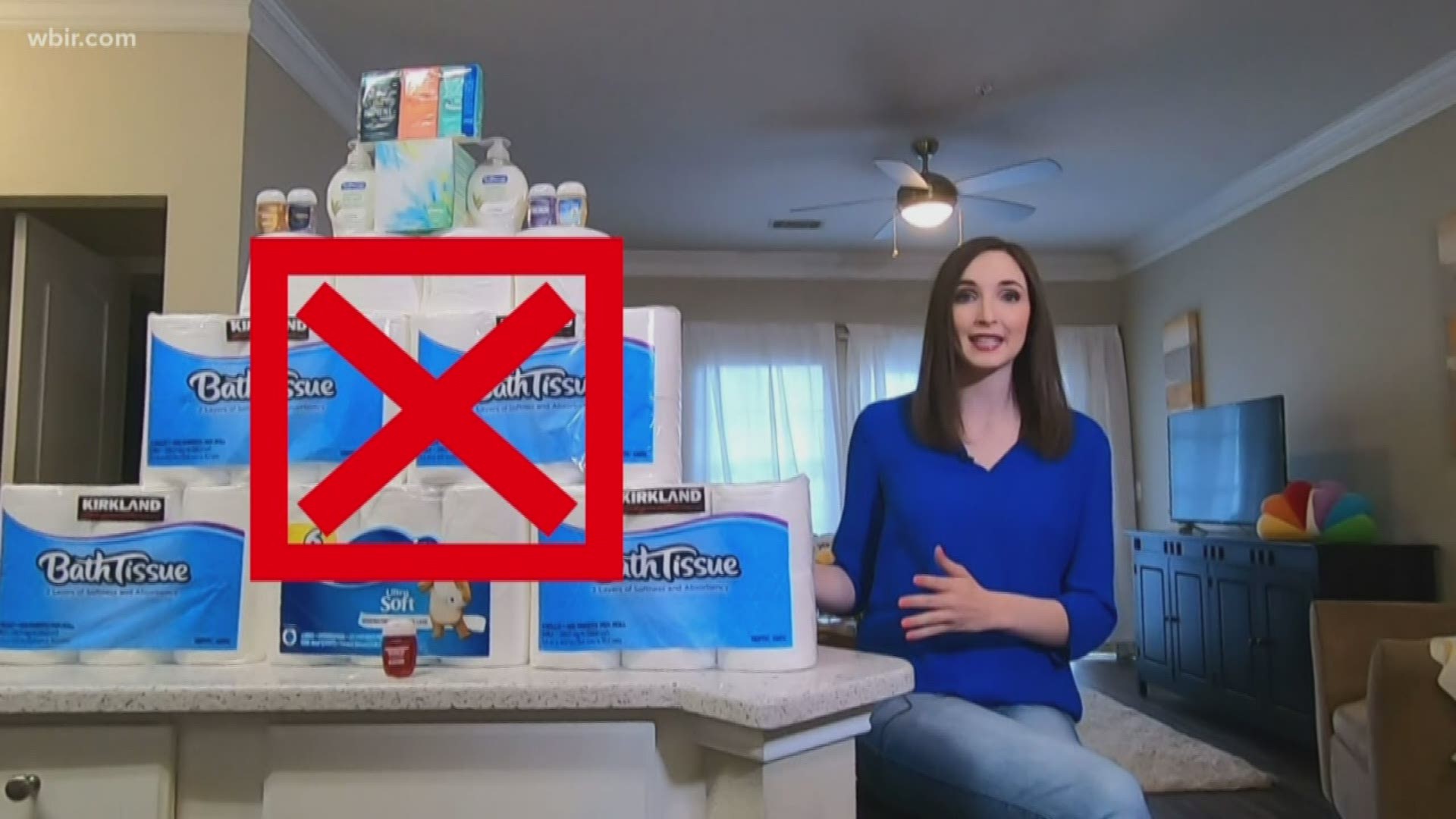KNOXVILLE, Tenn. — Dr. Martha Buchanan, director of the Knox County Health Department, said now is the time to prepare for the arrival of COVID-19.
"The recommendation is to have supplies for a couple of weeks in case you end up having to be quarantined for a couple of weeks," Buchanan said Tuesday. "Now is the time to really be thinking hard about planning and anticipating potential decisions that you might have to make in the future."
While it's important to have a plan in place, government officials and health leaders stress there is no reason to be stockpiling supplies.
Instead, they ask that you consider what you typically consume over a two-week period.
"It kind of depends on your household and who's there," Buchanan said. "How many people? What's the situation?"
Here's the best advice from the Centers for Disease Control, Department of Homeland Security and the American Red Cross.
Food and Water
The Department of Homeland Security's pandemic guide said you should "store a two week supply of water and food."
If you have reliable access to clean tap water, that should suffice for a period of isolation or quarantine. Unlike a hurricane or flood, you don't need to worry about the water cutting off.
As far as food, experts said non-perishables are best. Frozen foods, canned goods and anything with extended expiration dates work too.
The American Red Cross said you should have "food staples" on hand. Some grocery stores are closing early to restock and clean more thoroughly.
President Trump emphasized again on Sunday that there is no reason "for anybody in the country to hoard essential food supplies.”
Medication and Health Supplies
The Centers for Disease Control said you should “have access to several weeks of medications and supplies in case you need to stay home for prolonged periods of time.” The CDC also recommends making sure anyone you take care of has the right amount of medicine on hand as well.
The American Red Cross suggests having a 30-day supply of prescription medications as well as other health supplies. Those include "pain relievers, stomach remedies, cough and cold medicines, fluids with electrolytes and vitamins."
Household Items
The American Red Cross recommends having "household supplies like laundry detergent and bathroom items, and diapers if you have small children."
While that might include toilet paper, think about how much you actually use in a two-week period. For many families, what you normally purchase will suffice and experts stress that hoarding supplies only hurts those around you.
Cleaning Supplies
The CDC recommends cleaning and disinfecting any surfaces that are touched frequently such as "tables, doorknobs, light switches, countertops, handles, desks, phones, keyboards, toilets, faucets, and sinks."
CDC guidelines said you should use detergent or soap and water prior to disinfecting those surfaces. You can find a list of their recommended products here.

